Prostate cancer patient wants sanitary bins in men's toilets
- Published
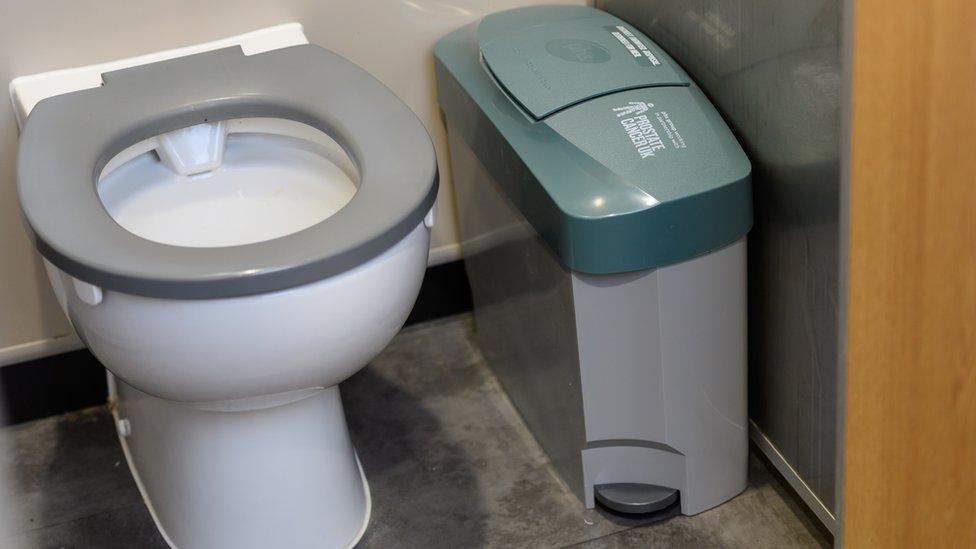
The Boys Need Bins campaign from Prostate Cancer UK aims to get sanitary bins into men's toilets
Sanitary bins should be available in men's toilets, a prostate cancer survivor has said.
Philip Dunn said bins would make it easier for men who had incontinence, as a side effect of prostate cancer treatment, to dispose of hygiene products.
It is the most common cancer in men and affects one in eight in the UK.
A charity campaign, Boys Need Bins, wants legislation to ensure bins are available in all male toilets.
Mr Dunn, from Coleshill, Warwickshire, said he had battled urinary incontinence after undergoing a radical prostatectomy to treat his cancer.
"I was wearing lots of incontinence stuff, incontinence pads, pants, you name it; there was just no breaks," he explained.
He said he had to "retrain himself" post treatment and would use small plastic bags to dispose of pads.
Using sanitary bins in men's toilets might, he said, be a "little bit embarrassing" but was "so important" for patients.
"Just pop it in the bin, job done," he said.
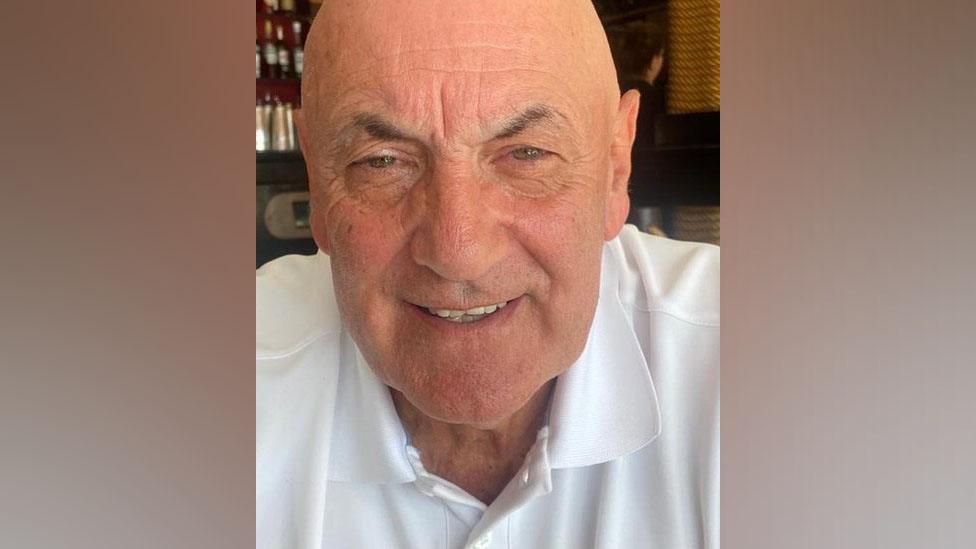
Philip Dunn said installing sanitary bins was "so important" for men being treated for prostate cancer
Diagnosis of prostate cancer has tripled in the past three years, external, with the risk believed to be higher in men over 50.
Head of improving care at charity Prostate Cancer UK, Amy Rylance, said one in three men over 65 were estimated to be living with urinary incontinence in the UK.
"There's a legal requirement that public toilets for women have sanitary bins, for men there is no requirement and most male loos do not have sanitary bins," she explained.
She said many men who had battled incontinence felt "trapped at home".
She added: "We want to make sure that for any man affected by incontinence, that he has access to be able to dispose of pads safely, in a way that doesn't impact on his health or anybody else's health, and discreetly."

Follow BBC West Midlands on Facebook, external, Twitter, external and Instagram, external. Send your story ideas to: newsonline.westmidlands@bbc.co.uk, external
Related topics
- Published20 August 2023
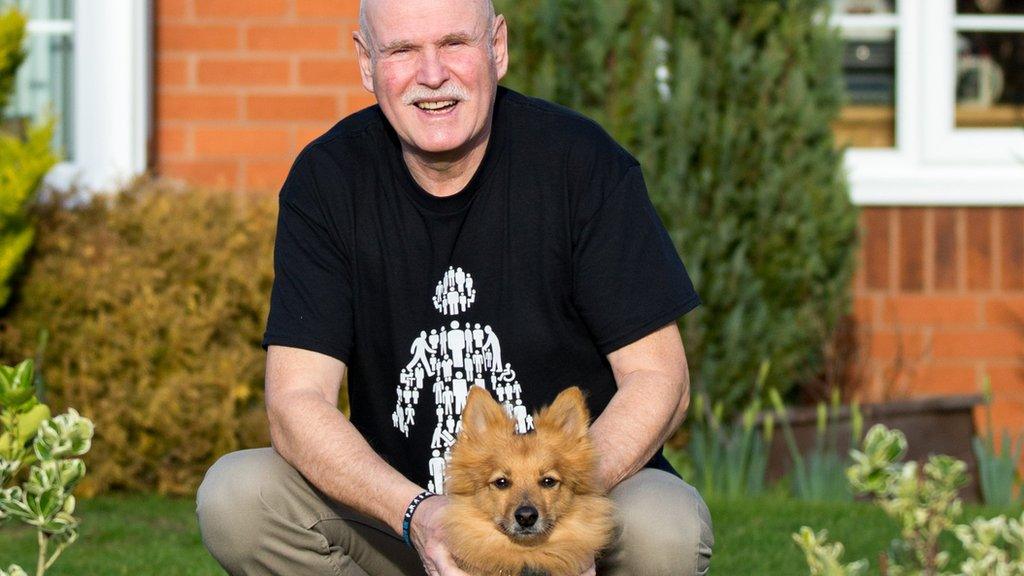
- Published8 August 2023
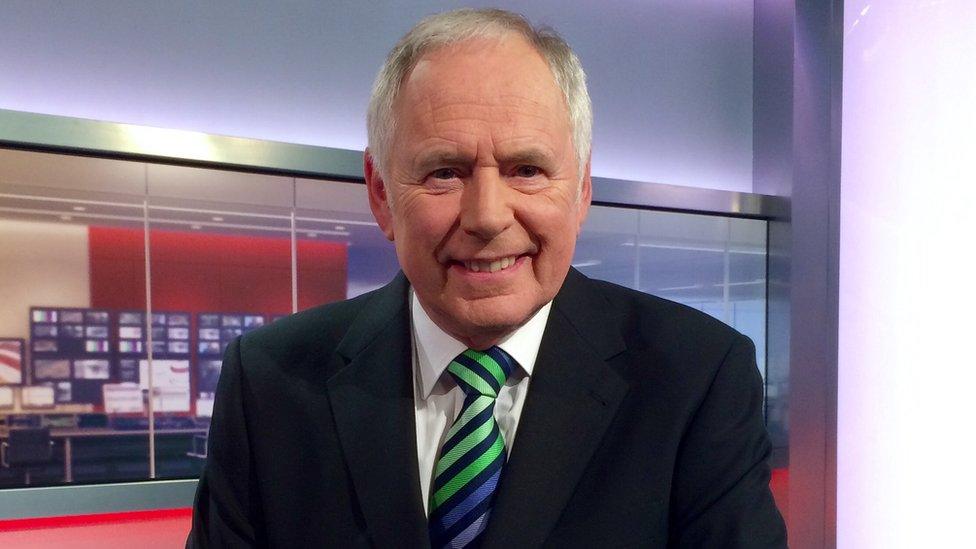
- Published8 August 2023

- Published7 April 2023
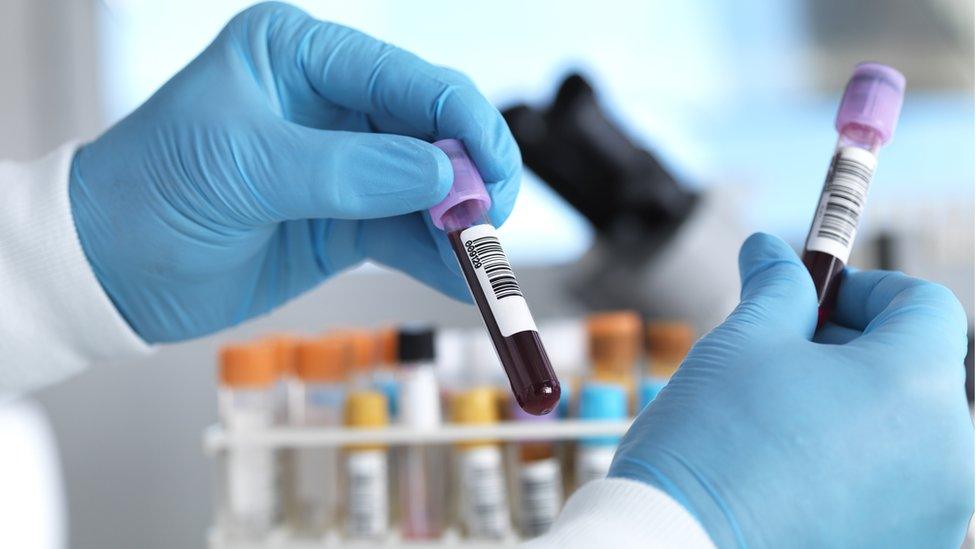
- Published21 October 2024
